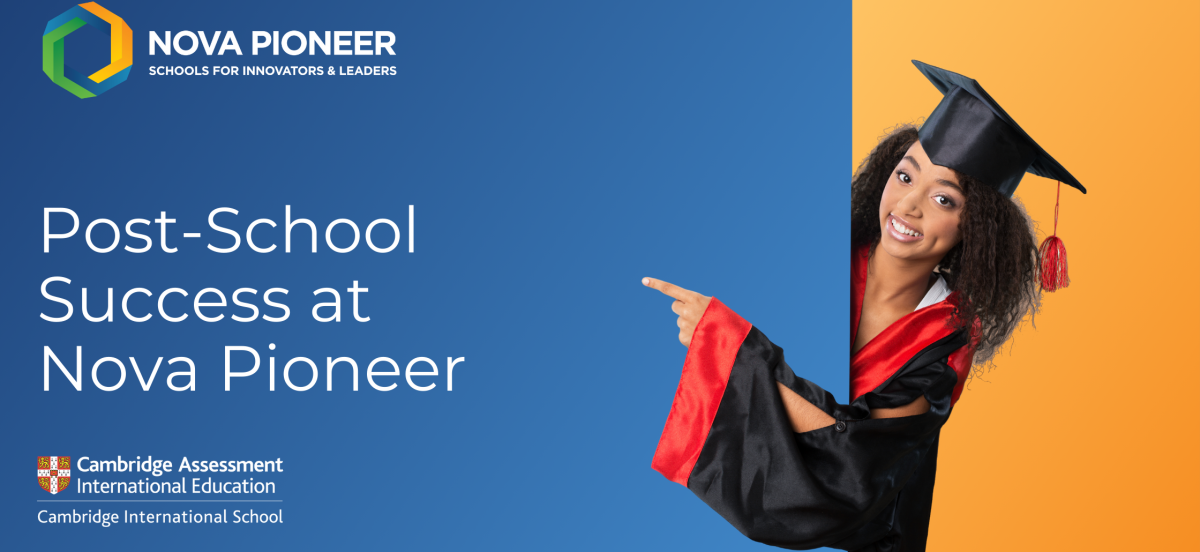Meet our Post School Success Manager
Dean Mazhawidza, a Career Development Strategist with expertise in Career Psychology within educational and sporting contexts, underscores the pivotal role of career guidance in schools. With eight years of experience in Cape Town, collaborating with institutions such as Star College, Reddam House, German Schools, Habibia and Windsor High School, Dean’s commitment to enhancing career readiness extends to partnerships with Progressive Principal Association Schools, Stellenbosch University and the University of the Western Cape, focusing on initiatives aimed at lower socio-economic backgrounds. His current doctoral pursuit at Stellenbosch University delves into elevating career maturity among Grade 10 learners across diverse socio-economic backgrounds in the Western Cape, South Africa, signifying a critical endeavour to address social justice within the education sector. Presently serving as the Post School Success (PSS) Manager at Nova Pioneer Schools in South Africa, Dean elucidates the significance of PSS in preparing learners for post-secondary endeavours, fostering self-awareness, and equipping them with the requisite skills for navigating an ever-evolving professional landscape.
Understanding Post-School Success (PSS)
Post School Success (PSS) stands as a cornerstone within Nova Pioneer Schools, dedicated to guiding learners towards successful transitions beyond secondary education. Against the backdrop of a rapidly evolving world of work, PSS endeavours to equip students with comprehensive insights into their career pathways, abilities, and the skills essential for navigating contemporary professional environments. Integral to PSS is fostering self-awareness encompassing personality traits, talents, and passions, thereby facilitating a holistic understanding of oneself within broader societal contexts.
The Rationale for PSS
Within Nova Pioneer Schools, PSS assumes a paramount role in nurturing innovative leadership qualities among students. By empowering learners to discern and explore areas of personal interest, PSS serves as a catalyst for igniting their aspirations towards effecting meaningful societal change. This process of self-discovery not only initiates students’ leadership journeys but also lays the foundation for informed decision-making, essential for shaping their desired career trajectories. Consequently, PSS serves as the genesis of career guidance development, offering students the clarity and direction necessary to navigate their professional pursuits effectively.
Benefits of PSS Implementation
Despite its often-overlooked status, PSS holds immense potential value for students, educational institutions, and the broader South African economy. In a landscape characterized by alarmingly high youth unemployment rates, estimated at 68%, the significance of PSS in mitigating such challenges becomes glaringly evident. By fostering career maturity, confidence, and self-efficacy among learners, PSS not only enhances their employability but also cultivates a culture of lifelong learning and adaptability. Armed with a robust understanding of their abilities and aspirations, students emerge as resilient individuals equipped to navigate the complexities of the professional realm, thus contributing to the economic and social fabric of the nation.
Implementation Strategies of PSS
At Nova Pioneer Schools, PSS implementation begins at Grade 9 with rigorous self-evaluation, wherein students introspectively identify their strengths, subject choices, interests, and potential career avenues. Dean and his team have developed a comprehensive career intervention program, encompassing five key facets of career maturity: Self-information, decision-making, Career Information, integration of Self-information and Career Information, and Career Planning. Through a blend of qualitative and quantitative assessments, students embark on a journey of self-discovery, culminating in the creation of their personalized PSS files detailing three career choices. This student-centric approach not only empowers learners to take ownership of their career development but also facilitates engagement with industry professionals and university representatives, thereby enriching their understanding of various career pathways. Moreover, students are encouraged to set meaningful goals, consolidating their journey towards career readiness. By the end of their journey, learners leave with a better understanding of their career path and prepared for their journey after school.

